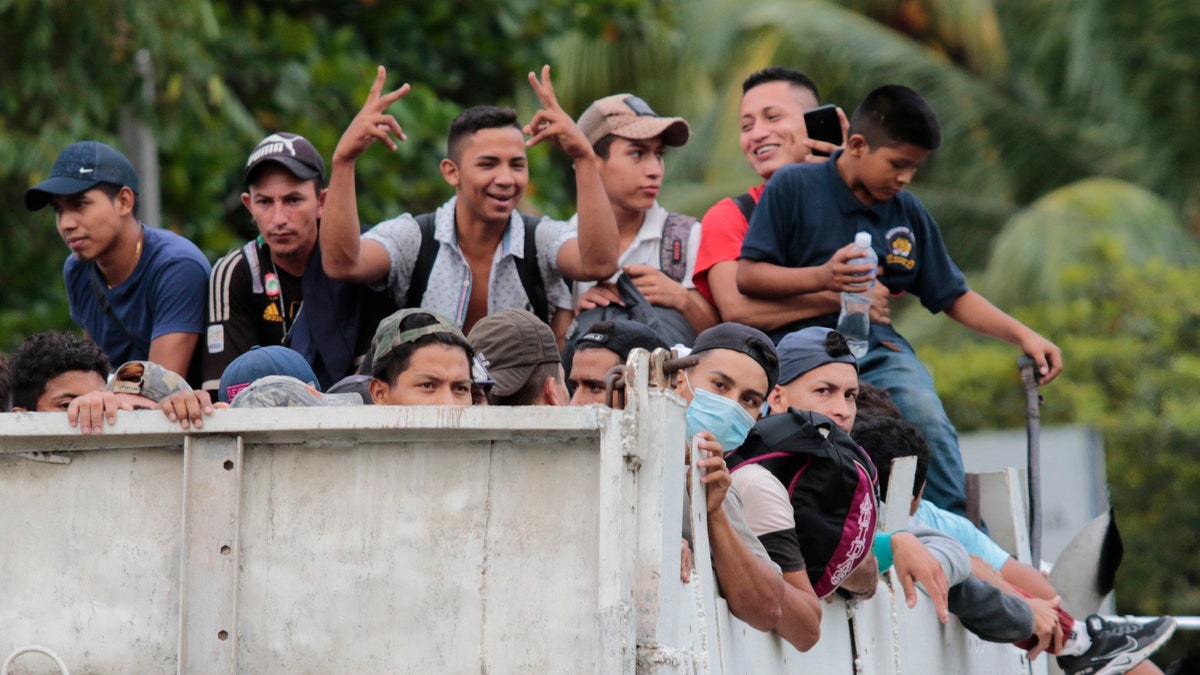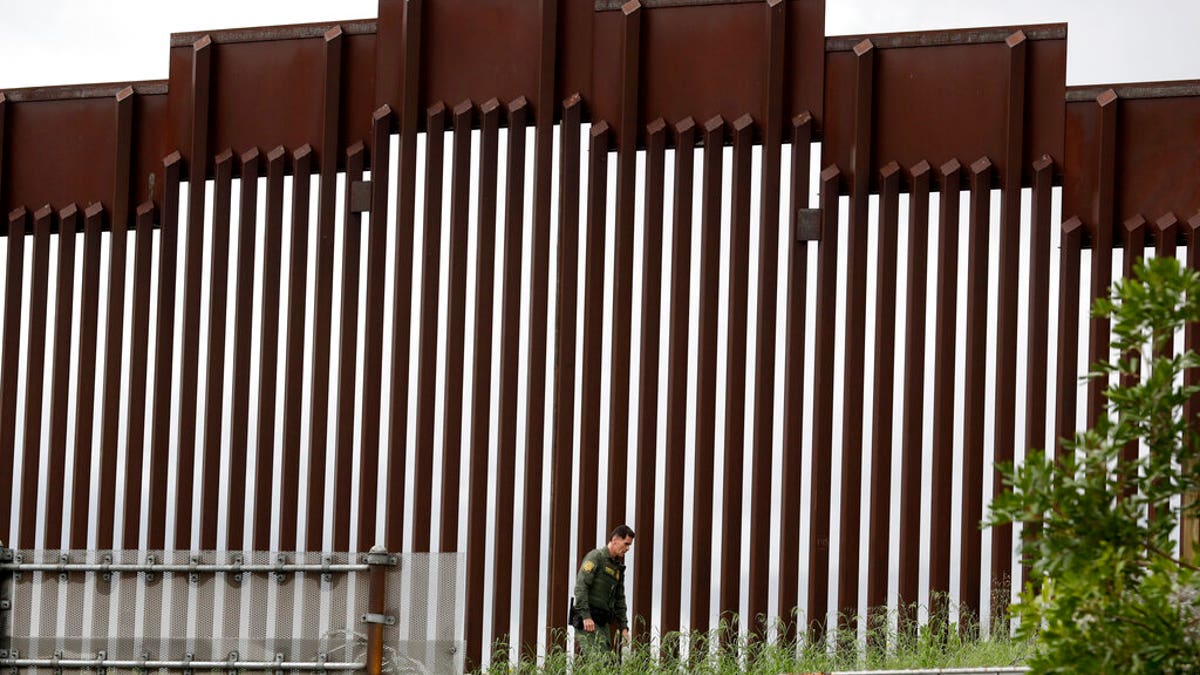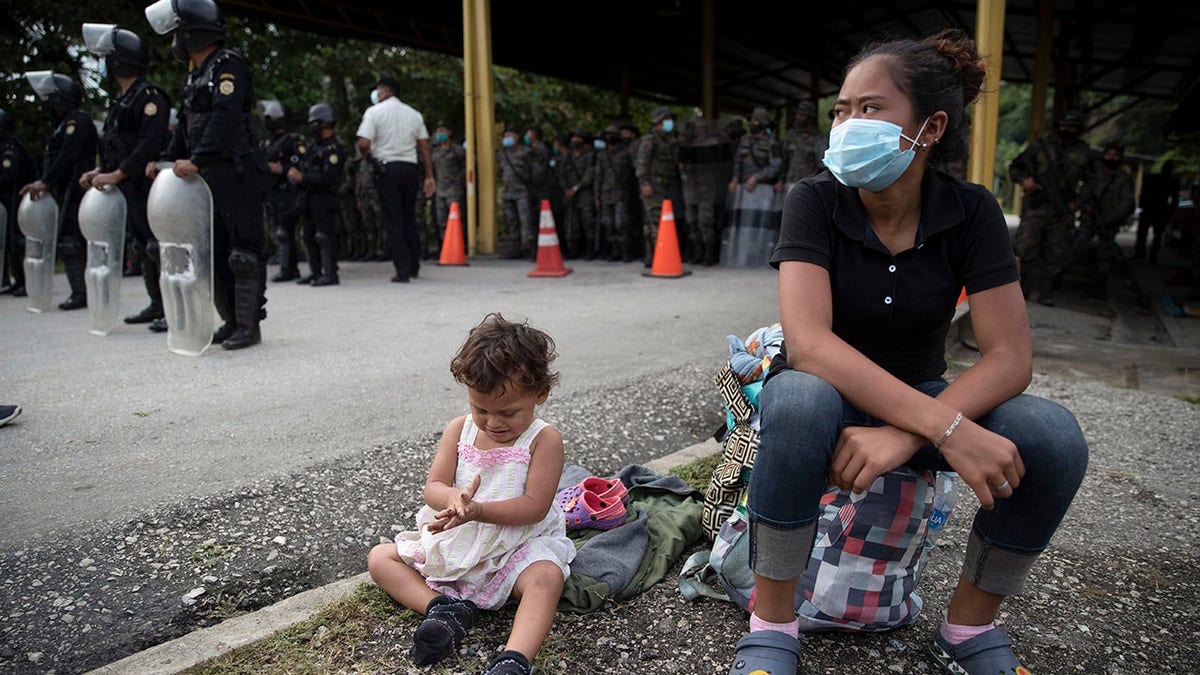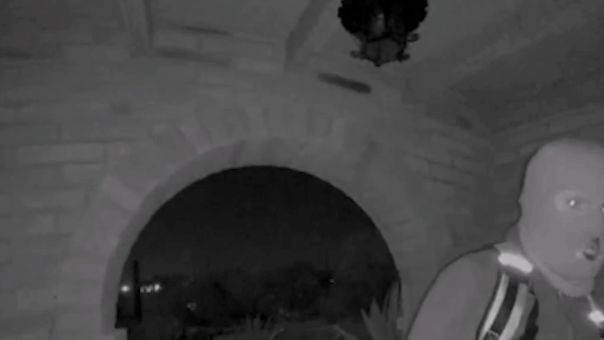Illegal immigrants challenge President Trump's decision to scale back DACA program
Reaction from Fox News contributor Tom Homan, former acting ICE director.
When filmmaker Namrata Singh Gujral set off to make the documentary, “America’s Forgotten,” in the early summer of 2019, she thought she would be bringing to life a remarkably different film pertaining to the trials and tribulations of those trying to unlawfully cross the U.S. border.
“I started reading stories of tragedy, of families trying to cross the Rio Grande, and it really resonated with me. I wanted to show their persecution. I bled and bought the narrative that the media and my party, the Democrats, had sold me,” Gujral told Fox News. “But then when I started making this, the things I found were eye-opening. I realized the narrative I had been sold and supported was not the real truth. Illegal immigration is a terrible practice that should not only be discouraged, but it should be stopped.”

Mother who lost her son, Dominic, to an illegal immigrant (America's Forgotten)
Gujral said it has shaken her political loyalties and caused her to question everything she once thought she knew about the southern border. For months, the entertainment industry veteran journeyed the globe to explore how other countries grapple with the dangers of illegal immigration. She also purveyed her own border state of California, seeking out stories of individuals struggling with the ripple effects of unauthorized crossers – in particular, parents who lost their children by the actions of illegal immigrants.
Our first son Drew was 25 years old and going to law school in San Francisco when we got a call one night that there had been a terrible accident,” Don Rosenberg, says in the film of his son who was killed by an illegal immigrant. “When we arrived in San Francisco, they told us that our son had been killed in a traffic collision. The man who hit him was in the country illegally and never made an attempt to stop."
Then there is the raw interview with parents who lost their son – a 911 dispatcher in the process of becoming a police officer – who was slain by an illegal immigrant while riding his motorcycle to work. The mother, who wears her child’s ashes around her neck, remembers how the at-fault driver refused to apologize in court and was released from prison after just 35 days – while the family is left to endure a life sentence.
NINTH CIRCUIT COURT RULES TRUMP CAN’T DIVERT MILITARY FUNDS FOR BORDER WALL
“America’s Forgotten” also points to other trickle-down consequences of illegal immigration. Woven throughout the narrative is the story of a homeless U.S. veteran of the Iraq War, who resides on the gray concrete slabs outside the manicured Veteran’s Affairs property on the west side of Los Angeles. Battling the demons of addiction and post-traumatic stress, he claims he could not get a construction job because of his lack of Spanish speaking skills.
However, on the "other" side of the almost 2000-mile jagged border, Gujral said she interviewed more than 150 different people purporting to step foot on U.S. soil: the injured, the poor, the vulnerable. However, the reasons for fleeing their homes – she said – were very rarely on the basis of seeking asylum.
“I would say that at least 95 percent I spoke to had no asylum basis to come here other than to seek a better life,” she surmised. “Remember, that is not to be confused with refugees and those fleeing war zones who have little choice.”

Migrants get a free ride from a trucker toward the Guatemalan border after leaving San Pedro Sula, Honduras. (AP)
Gujral recalled meeting one family who had three motorhomes in Central America and well-stuffed bank accounts, stressing that was just one of many examples of those who had successfully played the system and had been living in Los Angeles for seven years.
“America’s Forgotten” draws on how unscrupulous “coyotes” -- human smugglers that bring migrants across the U.S. border – pad their pockets with fat wads of cash from immigrants by using talking points and debate videos to urge more people to cross over under the ruse that they will receive free health care and food stamps.
Nonetheless, it is a lure that, especially for women, can be an excruciating price to pay.
“As many as one in three women are raped on their journey to the U.S., whether that is being part of a migrant caravan or on their own,” Gujral conjectured.

FILE - In this March 18, 2020, file photo, a Border Patrol agent walks along a border wall separating Tijuana, Mexico, from San Diego, in San Diego. Vice President Mike Pence in March directed the nation’s top disease control agency to use its emergency powers to effectively seal the U.S. borders, overruling the agency’s scientists who said there was no evidence the action would slow the coronavirus, according to two former health officials. (AP Photo/Gregory Bull, File)
Some are sold multiple times a day to different cartels or drug fiends, raped and assaulted, left by the wayside wounded and weeping. The director also pointed to a sense of “misplaced compassion” – questioning why not enough people point fingers at parents who risk the lives of their young children, knowing full well they don’t have a certifiable need for asylum.
GUNMEN IN MEXICO AMBUSH SECURITY FORCES, KILL 6 POLICE OFFICERS
However, the number of migrants making scot-free onto U.S. soil via the southern border has significantly fallen in recent times. While spring has notoriously been a high-time for an immigration influx, the Trump administration this year touted all-time low numbers for the first portion of 2020.
The number of border apprehensions did start to spike again through the summer, but numbers remained far behind the pinnacle of the 2019 migration crisis, potentially as a result of the economic slump brought on by the coronavirus pandemic.
In March, the administration issued an order that empowered American immigration agents to halt standard processes and abruptly deport illicit border crossers, citing public health concerns. According to government figures, more than 90% of the arrests that happened in July resulted in a rapid return to Mexico, where asylum seekers are mandated to wait to have their case reviewed.
“Crossings, illegal and legal, are down since the beginning of the pandemic. Government data in the spring indicated that illegal crossings were down as much as 50 percent," according to DW Gibson, journalist and author of 14 Miles: Building the Border Wall.”
Gibson stated that the Trump administration stepped up border closures "was an effort to stop the spread of the disease" and now those closures have "been extended to October 21."
The pandemic, added Gibson, has changed migratory patterns, noting they "are down across the globe as people wrestle with fighting off sickness and death in their home communities. Legal crossings are way down as the federal government has put in place various travel restrictions at various times and also severely restricted access to visas.”
And while the deeply decisive issue of immigration was front and center in the Presidential election cycle four years ago, it has receded from the 2020 headlines – although the two candidates bestow dramatically different views on the matter.
“The issue of immigration has been pushed aside like so many essential because of the Covid pandemic,” Gibson explained. “As long as the nation is gripped by a deadly pandemic, it’ll make it hard to get to all of the other pressing issues.”
Should Biden be triumphant at the ballot box, he has vowed to swiftly undo and re-shape the Trump team’s hardline stance. As per the Biden campaign website, the Democratic hopeful lashed out at the reigning president’s “misguided policies,” and promised to “immediately reverse the Trump Administration’s cruel and senseless policies that separate parents from their children at our border,” “surge humanitarian resources to the border,” as well as “end prolonged detention.”

An Honduran migrant and her daughter sit at a roadblock set by security forces in Poptun, Guatemala, Friday, Oct. 2, 2020. Guatemala vowed to detain and return members of a new caravan of hundreds of migrants that set out from neighboring Honduras in hopes of reaching the United States, saying they represent a health threat amid the coronavirus pandemic. (AP Photo/Moises Castillo)
In contrast, Trump’s reelection to a second term would enable a continued clampdown on illicit immigrants and sustain the push to deter those from trying through an array of stringent policies – some of which have stalled in federal courts – and continue construction of the storied “border wall,” of which more than 300 miles have already been erected or repaired, according to the Customs and Border Patrol.
While analysts have pointed out that Trump has also sharply curtailed much legal immigration to the United States too – of which he often positions as putting the interests of Americans first – his administration also endeavored at the Republican National Convention that it stands behind lawful means of coming to the country, escaping government persecution, and becoming U.S. citizens.
Yet given the sensitivity and fraught emotion that often encircles the issue of immigration, especially in the typically left-leaning enclave of Hollywood, Gujral is bracing for a backlash as “America’s Forgotten” becomes available for streaming on Friday.
CLICK HERE TO GET THE FOX NEWS APP
Some of the traditional trappings of filmmaking such as the crew credits are not included in the film due to fears of personal and professional repercussions. The film acknowledges the change in its opening disclaimer.
The cause for concern came from some early articles and reviews. “Suddenly, I was barraged with all these comments and hate mail from people talking about how terrible the film was and that it was the worst film they had ever seen,” said Gujral, “Only the film wasn’t even out yet.”









































